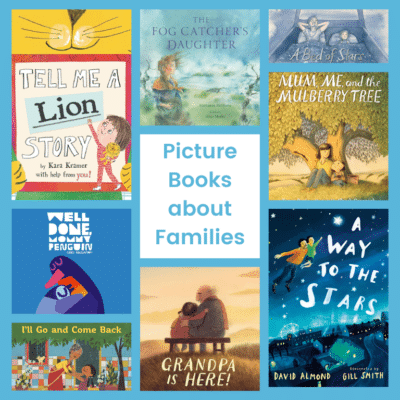I wrote about how to NOT to tell a child he/she is gifted, and now I’m sharing my thoughts about how to do it well.
Pick a time when you have time.
There needs to be time for a real conversation, not a random comment tossed over a parent’s shoulder into the backseat of the van.
Pick a time that’s good for both parents and kids. No need to have both parents sit the child down in some kind of “facts of life” talk. Think casual with a broad time range.
Do your homework
If you find out your child is gifted, make sure you know you know what it means yourself.
Read some articles, like these:
- 8 Reasons You Should Label Kids as Gifted
- How to Choose a School for Your Gifted Child
- What To Do When One Child is Identified as Gifted and Another is Not
- You can read all of the articles in the “Parenting” category here
Order some books, like these (note: two are mine):
Watch a few videos, like these:
- Developmental Potential of Gifted Children (Dan Peters)
- Asynchronous Development in Gifted Children (Dan Peters)
- Growing up Gifted (Tall Poppies)
Listen to a few podcasts, like these:
- Perfectionism podcasts and here, too (where I was the guest)
- The Fringy Bit
- Mind Matters
Read articles on a few websites, like these:
If you have questions, reach out to someone, like me.
Say something like this (adjusted to the child’s age):
So, you may have heard something about this already, but I want to share with you that you were identified as a good fit for the school district’s gifted program.
What that means is that they think that you will have the best possible experience in school if you get to be in this program.
Being gifted doesn’t mean you’re better than other kids, and it doesn’t mean that everything will come easily to you.
With almost everything related to people, there are differences. Some people are tall, and some are short. Some have big feet, and some have small feet. We have different skin and eye and hair colors.
The same is true of how we think. Some of us think quickly, and some think more slowly. Some people do better in school, and some have a harder time. Some people get mad easily, and some are more patient. We’re all different, and that’s good and right.
What is does mean that for some reason, and it’s probably a combination of genetics and environment (for younger kids: how you were born and how you have been raised), you think differently from many other people your age in a way that has benefits and challenges (younger: good things and hard things). The word we use to describe that is “gifted.”
Add in the specifics
After you give that overview, give the specifics of what the programming looks like.
- Will the child be in a pull-out program?
- Will the child be with other gifted kids?
- Will there be extracurricular activities like Destination Imagination?
- Will there be ability grouping?
Just explain what the child should/can expect by saying, “What that means for you on a daily basis at school is that…”
Keep in mind that there’s an emotional component, too
Make sure you share with the child that giftedness isn’t just about school work. It’s also got a social/emotional side as well.
Say something like, “When people have strong minds, it impacts the way they feel, too, not just how they think.”
Explain the idea of intensities and that sometimes gifted kids look like they have things like ADHD when they don’t really.
They may get bored more easily than others or have trouble understanding why someone needs something explained more than once or other issues. That doesn’t mean that it’s an excuse for not behaving well.
Give the warning
Doing well in school takes more than just being smart. It takes work, so just because you are in a program for kids for whom thinking comes easily, it doesn’t mean grades will, too.
Be prepared to work hard, and don’t think that just because you have to study it means you’re not smart. Smart people study.
Check In
As you give the little spiel I describe above, check in regularly for questions, such as:
- Does this make sense to you?
- Does this sound right to you?
- What questions do you have?
- How is this different from/the same as you were thinking?
- What worries do you have?
- What are you hoping for in the gifted program?
Stay Tuned
I’d like to crowdsource this, so if you have ideas, please share. I’ll update the post with more ideas, so stay tuned.
Wrapping Up:
The core idea is to tell a child what is happening while managing the expectations of what it means and separating the program from the child’s core identity.
Be honest, and be open. Keep bringing it up over time. Check in with the child. Make their giftedness as much a discussion as you would physical health. That means that you check in/talk about it occasionally, but it doesn’t dominate discussions or inform all choices.
The important thing about this child is that he/she is a child who needs sunshine and playing and great books and wide-open love.
You may also like:
- How NOT to Tell a Child He/She is Gifted
- Why School’s Not Fair to Gifted Kids
- The Gifted Mask: A Student Speaks






